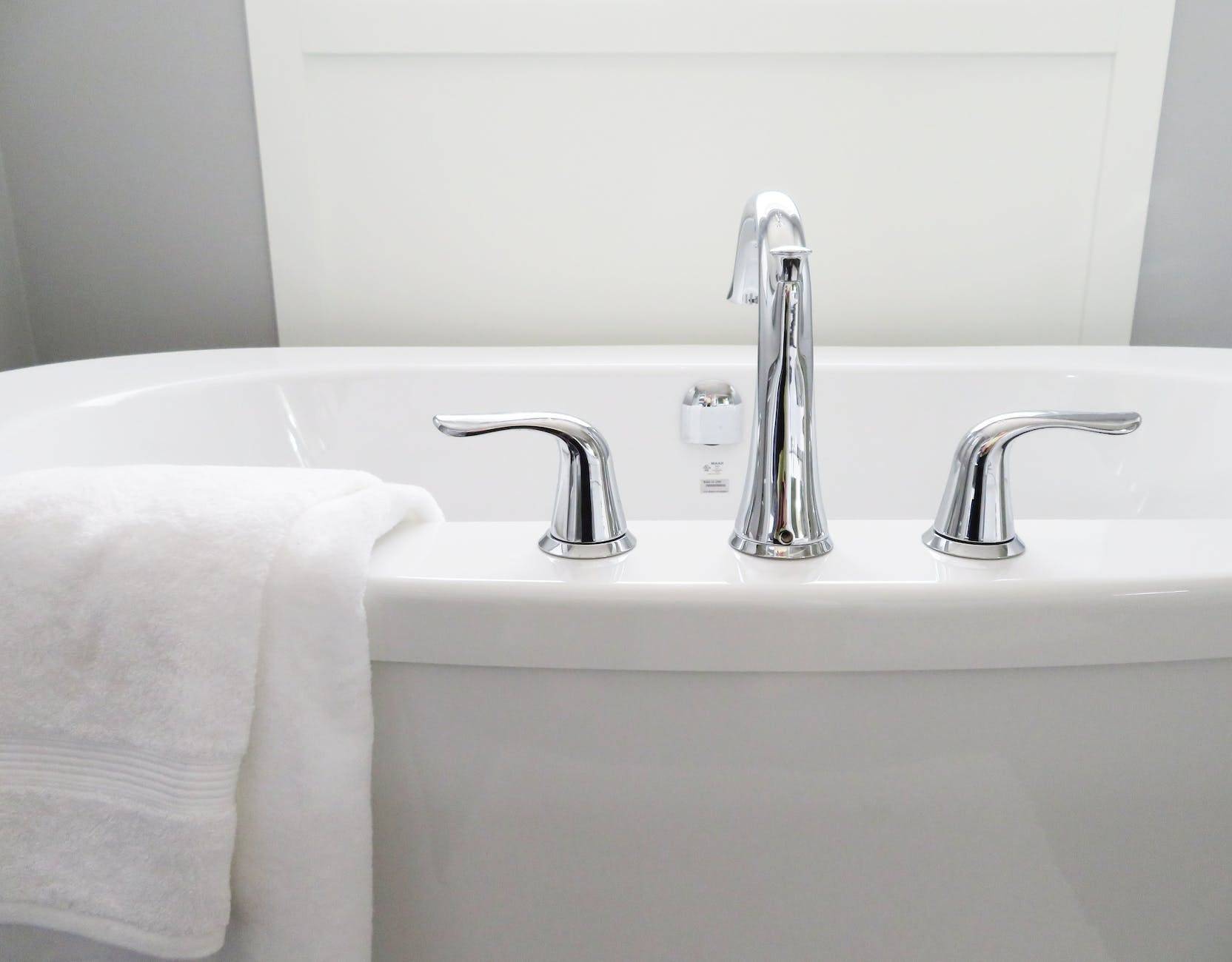This post may include affiliate links. Please read my disclaimer page for more info.
In the hustle of modern life, the demands of daily tasks pile up, it can be hard to find clarity. But what if the key to mental clarity lies in the very spaces we inhabit? Can a clean space really lead to a clear mind?
The answer – is a resounding yes. Being surrounded by clutter causes stress, cognitive load and makes it harder for you to focus. The act of decluttering doesn’t only alleviate these symptoms, but can even provide peace and mindfulness.
In an age of burnout, the quest for mental clarity becomes a priority.
Read on to learn about the connection between your mental health and your space.
Does a Clear Space Really Mean a Clear Mind?
We’ve all heard the saying: “A cluttered space is a cluttered mind.” But is there any truth to this old saying?
Impact on Mental Clarity
Because of the visual chaos of clutter, your brain is having a hard time staying focused. The visual cortex is trying to pay attention to everything at once. 1
The stimuli create a constant background noise that tell your brain – there are unfinished tasks.
Basically, your brain is trying to stay on top of it while you are trying to focus on our current task. Beyond the visual chaos, clutter can hinder our ability to concentrate and think clearly.
In a nutshell: We become more distracted, find it harder to focus, and can even struggle to make decisions.
This can create a sense of mental fog and make it hard for you to think clearly.
The Promise of a Clean Environment
Imagine walking into a space that’s free of clutter – every item has its place, surfaces are clear, and the air feels lighter.
“The space in which we live should be for the person we are becoming now. Not for the person we were in the past.”
― Marie Kondō
In this environment, our minds get the opportunity to exhale. We’re not processing the excess stimuli. As a result, we can direct our mental energy towards more meaningful pursuits.
Improving Cognitive Function
A tidy and organized environment can lead to improved cognitive function. When we’re surrounded by order, our brains can function more efficiently.
We’re better able to process information, make decisions, and engage in creative thinking. In other words, a clean space provides our minds with the breathing room they need to thrive.2
In the hustle of our daily lives, it’s easy to overlook the impact that our physical surroundings can have on our well-being.

How Does a Clean Environment Affect Mental Health?
As we have established – A cluttered space has a negative effect on our cognitive mind and mental clarity. Just as a cluttered mind can lead to stress and overwhelm, a cluttered environment can evoke similar feelings.
Consider your living space as an extension of your mind.
The Psychological Aspects of Clutter
It’s no surprise that the environment we inhabit can have a profound impact on our thoughts and emotions. Think about the last time you walked into a room that was filled with chaos – piles of papers, scattered belongings, and a general sense of disarray.
How did you feel? Overwhelmed, stressed, maybe even a little anxious? That’s because your senses get bombarded with stimuli – leaving you feeling mentally drained.
Why does clutter make us feel bad?
A cluttered space can evoke feelings of helplessness and lack of control.
In contrast, cleaning provides a sense of agency and control over your environment. Transforming chaos into order can foster a sense of accomplishment and empowerment.
Moreover, seeing a room go from cluttered to pristine—triggers a release of dopamine.
This is why we like pressure washing videos, the visual progress is very satisfying. (At least I do.) This dopamine reinforces the behavior and contributes to the calming sensation you experience.
How Do I Completely Clear My Mind?
As you might have guessed, cleaning up your space will help clear your mind. Although it might not clear your mind completely, here are some practical steps:
Practical Tips for Decluttering
- Start Small: Tackling a cluttered space can feel overwhelming, so start with a small area. It could be a desk, a drawer, or even a single shelf. The sense of accomplishment from completing a smaller task can motivate you to tackle larger areas.
- One-In, One-Out Rule: For every new item you bring into your space, consider removing something old. This helps maintain a balance and prevents clutter from accumulating.
- Categorize and Sort: Organize items into categories to make decluttering more manageable. Sort items into piles such as “keep,” “donate,” and “discard.”
The KonMari Method and Mindful Decision-Making
The KonMari method, popularized by Marie Kondo in her book “Sparking Joy,” emphasizes decluttering based if the item sparks joy in your life.
This approach involves holding each item and asking yourself if it truly brings happiness. If not, it’s time to let go.
Central to successfully decluttering is mindful decision-making. When deciding whether to keep or discard an item, consider its value in your life.
Does it serve a purpose, or does it carry sentimental significance? If an item doesn’t align with your current lifestyle or goals, it might be time to part ways.

Why Does Cleaning Calm Me Down?
Have you ever noticed that the act of cleaning can have a surprisingly calming effect?
As you clean, your attention shifts away from worries and tasks, allowing you to be fully present in the moment.
The Role of Mindfulness
While I was listening to the audiobook version of “Sparking Joy” I realized the connection to mindfulness that cleaning has. I now see it as an opportunity to practice self-care and being mindful.
This mindset shift has led me to fold more of my clothes than I have before.
Cleaning as a Mindfulness Practice
In “The Power of Now” by Eckhart Tolle, the concept of mindfulness is explored as a means to stay grounded in the present moment. Cleaning can serve as a mindfulness practice in itself.
As you engage in cleaning tasks, you focus your attention on the physical sensations, sights, and sounds around you.
This alignment with the “now” can induce a sense of calm and reduce mental clutter.
Benefits of a Clean Environment
Maintaining a clean and organized environment is important for your mental and emotional well-being.3
An organized space also helps us find what we need quickly, reducing frustration and stress. Additionally, it eliminates visual distractions, enabling more focused work.
Improved Mental Health
A clutter-free environment contributes to improved mental health. When your surroundings are tidy, your mind can operate with greater clarity.
You’ll experience reduced mental clutter, allowing for more focused thinking and better decision-making. As stress levels decrease, you’re better able to manage challenges and setbacks.
Reduced Stress
A messy environment can trigger feelings of overwhelm and anxiety, keeping your mind in a perpetual state of unrest.
By cultivating a clean space, you create an oasis of calm—a place where you can retreat from the demands of life and find solace.
Increased Focus and Productivity
A clutter-free space supports increased focus and productivity. With fewer distractions, you’re better able to engage in tasks with heightened concentration.
This can lead to greater efficiency, improved work performance, and a sense of accomplishment.
Enhanced Overall Well-Being
The act of decluttering is an act of self-care—it demonstrates your commitment to your own comfort and peace of mind. As you care for your physical spaces, you’re also nurturing your emotional and mental state, creating a holistic sense of balance.
Taking Action for Positive Change
Start with small areas and gradually expand into other bigger areas. Donate items you no longer need, and embrace a “less is more” mentality.
Take this opportunity to shape your environment. Make good habits easier and bad habits harder by designing your environment around your goals.
Embrace the mundane
In conclusion, our environment has a big effect on our mental health. Your daily chores are an investment in yourself and your wellbeing.
Maintaining a clean environment isn’t about aesthetics or cleanliness; it’s a tool for your mental health and well-being.
Remember that you don’t have to keep a perfect home. It’s about offloading your mind by getting things done and removing clutter.
I hope this inspires you to prioritize yourself and make room for your goals.
- McMains, Stephanie, and Sabine Kastner. “Interactions of top-down and bottom-up mechanisms in human visual cortex.” The Journal of neuroscience : the official journal of the Society for Neuroscience vol. 31,2 (2011): 587-97. doi:10.1523/JNEUROSCI.3766-10.2011 ↩︎
- Jimenez MP, Elliott EG, DeVille NV, et al. Residential Green Space and Cognitive Function in a Large Cohort of Middle-Aged Women. JAMA Netw Open. 2022;5(4):e229306. doi:10.1001/jamanetworkopen.2022.9306 ↩︎
- F. Fenne Bodrij, Suzanne M. Andeweg, Mariëlle J.L. Prevoo, Ralph C.A. Rippe, Lenneke R.A. Alink, The causal effect of household chaos on stress and caregiving: An experimental study, Comprehensive Psychoneuroendocrinology, Volume 8, 2021, 100090, ISSN 2666-4976,
https://doi.org/10.1016/j.cpnec.2021.100090. ↩︎
